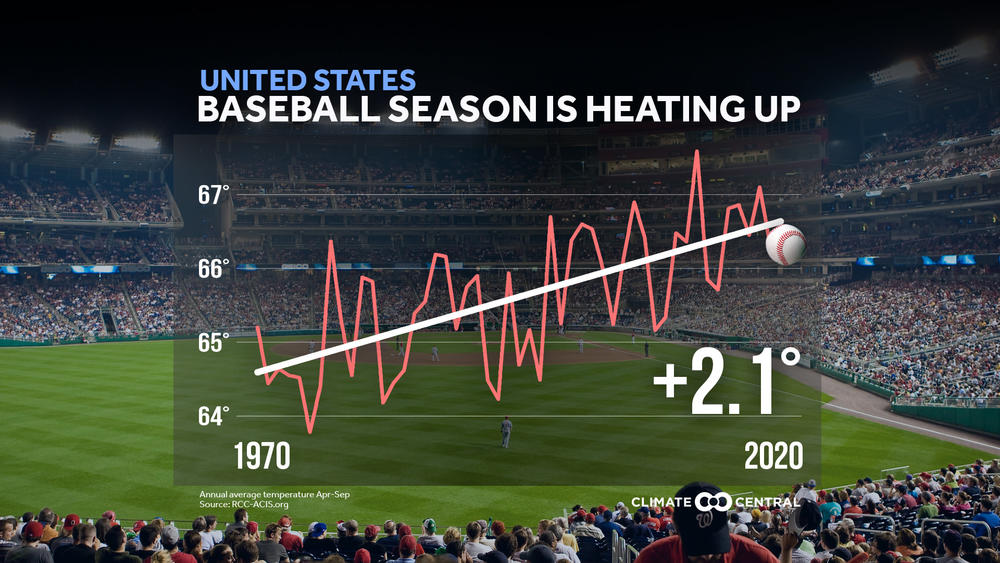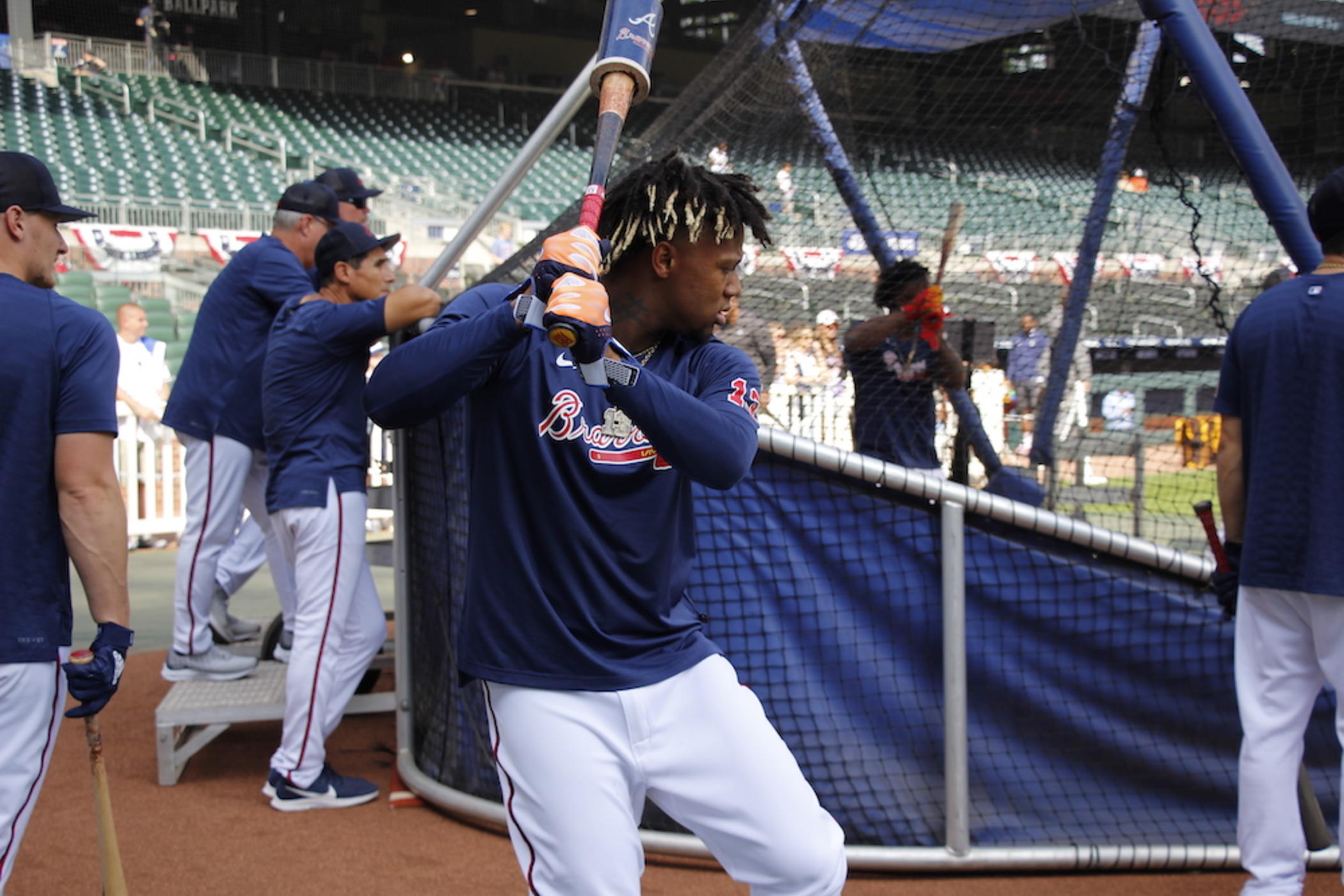
Section Branding
Header Content
Climate change could affect the baseball season. Experts explain how
Primary Content
As Georgians celebrate the start of the Atlanta Braves' season, weather could change how the game is played.
A report from Climate Central found that Major League Baseball cities were about 2.5 degrees warmer in 2020 than they were in 1970.
The implications of warmer cities could have implications for player and viewer fatigue, but could also lead to more home runs.
"Warmer air tends to be less dense," said Dr. Marshall Shepard, a University of Georgia professor and climate expert. "So if you have less dense air, there's less resistance on the ball as it's traveling in the air."
He said that less dense air could also cause curveballs to curve less.

Shepherd cautioned more research is still needed on the topic.
He also said that increased heat could lead to more severe rainstorms, and in turn, more rained-out games.
"If you look at statistics on amount, you might not necessarily see great changes in whether it's wetter or drier in Truist Part, for example," he said. "But we know that when it rains, it's raining with more intensity."
Some baseball stadiums have coverings and climate control to help combat more intense rain and warmer temperatures. But Truist Park, where the Atlanta Braves play, is open.
The Atlanta Braves open their first home game of the season at 7:20 p.m. Thursday at Truist Park near Atlanta.


